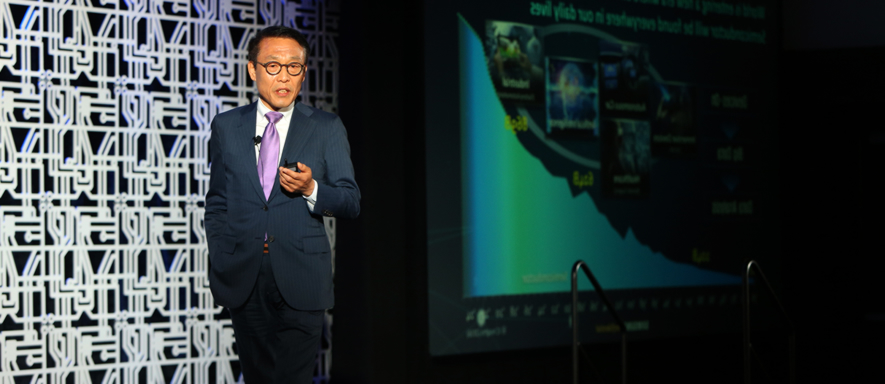Samsung Electronics have selected their replacement for the outgoing vice chairman and CEO Kwon Oh-hyun, who surprised many industry analysts following his shock announcement that he was stepping down from his position with the South Korean conglomerate. It has been formally announced that President of Samsung’s semiconductor business, Kim Ki-nam will take over from March next year, and it was also disclosed that he will head up the device unit.
Samsung’s outgoing CEO will be joined in departing the No.1 smartphone manufacturer in the world by two other high-profile division chiefs who have also decided to call it quits. Shin Jong-kyun will be replaced as head of the IT and mobile communications division by Koh Dong-jin, whilst Kim Hyun-suk will take over as President and Head of Consumer Electronics Business from Yoon Boo-keun.
In addition to this, Samsung disclosed that it will separate the chairman of the board and the CEO roles. However, this disruptive management reshuffle has had no effect on business, as Samsung recorded record Q3 earnings. The firm’s Q3 reports has shown that it will double its dividend payments in 2018 to KRW9.6 trillion ($8.4 billion) for the next three years. Its 2017 capex would also expand to 81% in order to fund the expansion of its chip production facilities.
Samsung’s mobile communications business reported an increase of 23% in turnover, with operating revenue rising 3.2% to KRW2.29 trillion. Its VP of mobile communications, Lee Yeong-tae, attributed the success down to the launch of its flagship device the Note 8, and to the strong sales performance of the new J series. Samsung said there was a strong demand for its Note 8 devices from almost every region in the world.
With all eyes now fixated on its results for Q4, Lee expects competition to increase in the premium smartphone market due to the release of smartphone models. Samsung is predicting that handset shipments will decrease in the last quarter primarily because global smartphone sales are likely to decline.
On a group level, the company reported a Q3 net profit of KRW11.1 trillion, more than double the KRW4.54 trillion in Q3 2016. Revenue increased 29.8 per cent to KRW62 trillion, with memory chip sales increasing 65 per cent year-on-year to KRW16.3 trillion. Two weeks ago, the company predicted Q3 operating profit would nearly triple to KRW14.5 trillion on the back of brisk demand for semiconductors.





